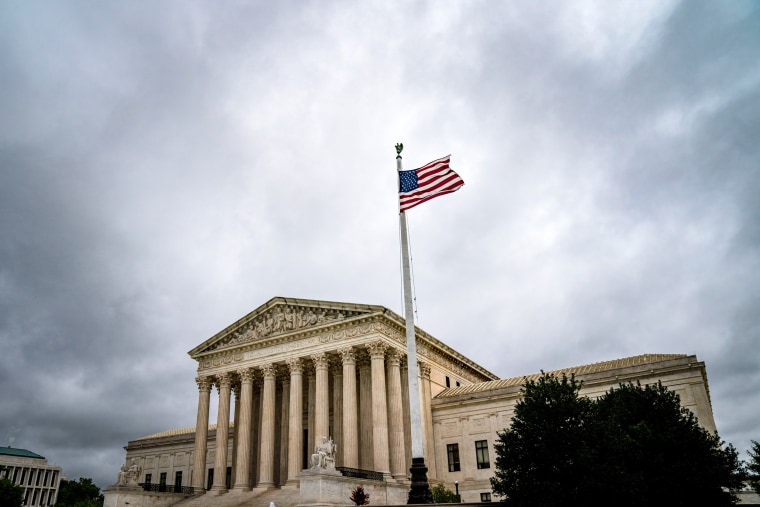WASHINGTON — The Supreme Court declined over the objection of two justices Monday to decide whether defendants facing serious criminal charges are legally entitled to 12-person juries, rejecting an appeal from an Arizona man who was convicted of fraud by a jury of just eight people.
The decision not to take up the appeal, brought by defendant Ramin Khorrami, means states can continue to use of six- or eight-person juries in felony cases. Arizona and five other states — Connecticut, Florida, Indiana, Massachusetts and Utah — allow the practice. Florida, the third most populous state, uses six-person juries for all criminal cases not eligible for the death penalty.
Conservative Justices Neil Gorsuch and Brett Kavanaugh said they would have taken up the case, with Gorsuch writing a 10-page dissenting opinion taking aim at the Supreme Court's 1970 decision that said juries could be as small as six people.
"For almost all of this nation’s history and centuries before that, the right to trial by jury for serious criminal offenses meant the right to a trial before 12 members of the community," Gorsuch wrote.
That changed with the 1970 ruling, which was based on social science, not law, he said.
"That mistake continues to undermine the integrity of the nation’s judicial proceedings and deny the American people a liberty their predecessors long and justly considered inviolable," Gorsuch wrote.
Khorrami’s lawyers argue that the Constitution’s Sixth Amendment guarantee to trial by jury, a bedrock legal principal, necessarily requires 12 people, a tradition that dates from medieval England. A 12-person jury is common in dramatic depictions of criminal trials, such as the classic 1957 film "12 Angry Men."
On a related issue, the court ruled in 2020 that the right to trial by jury requires a unanimous verdict for serious crimes, a decision that overturned a 1972 Supreme Court ruling and ended the practice of allowing convictions by divided juries in two outlier states, Louisiana and Oregon.
The Sixth Amendment does not specifically say how many people are required to serve on juries. Khorrami's lawyers say it would have been assumed at the time it was written to refer to 12-person juries.
Khorrami was convicted of fraud and theft in a scheme dating to 2013 involving a married woman with whom he had a relationship. He threatened to expose the affair to the woman’s husband if she did not pay him $40,000. The woman, whose name was not revealed in court papers, ultimately paid $34,000 before she told her husband what had happened, prompting a criminal investigation.
The jury convicted Khorrami on both counts, and he was sentenced to two months in jail and supervised probation.
An intermediate state appeals court upheld Khorrami’s convictions in July 2021. In February, the Arizona Supreme Court declined to hear his case.

